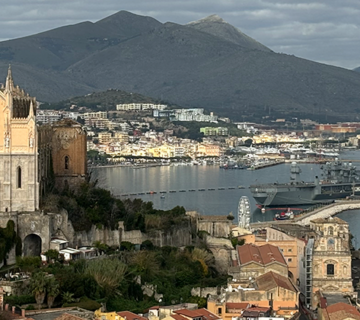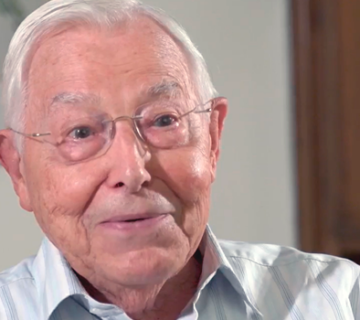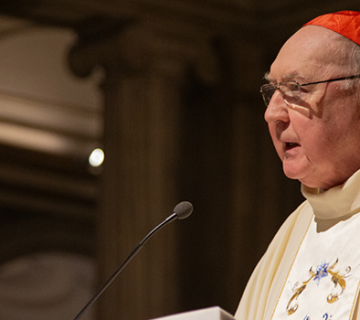 Do you want to know what makes the difference in life? Basing it on living the Word. This is what the gathering was all about, which brought together 700 youths, many of them very young, from all over Portugal, at Our Lady of Boa Nova, a few kilometers outside Lisbon.
Do you want to know what makes the difference in life? Basing it on living the Word. This is what the gathering was all about, which brought together 700 youths, many of them very young, from all over Portugal, at Our Lady of Boa Nova, a few kilometers outside Lisbon.
 Some arrived the day before from the Azores Islands and Madeira. The faces of those who got off the buses coming from the north were weary and sun-burnt following the four or five hour-long journey. But at eleven o’clock when the doors of the auditorium were opened, the meeting hall was quickly filled with a very lively and attentive audience. Everyone was “in sync” as the opening song proclaimed.
Some arrived the day before from the Azores Islands and Madeira. The faces of those who got off the buses coming from the north were weary and sun-burnt following the four or five hour-long journey. But at eleven o’clock when the doors of the auditorium were opened, the meeting hall was quickly filled with a very lively and attentive audience. Everyone was “in sync” as the opening song proclaimed.
Those who had invited them and had prepared the program filled with singing, choreography, testimonies and reflections, had worked for months on end, during one of the busiest periods at most universities her in Portugal when exams are in full swing. And here is another reason why this auditorium of 700 youths was rather extraordinary. Some of them would have to face exams in the coming days, and some had postponed their exams in order to attend at the event.
 Along with the band, there was also a large sign on stage with the letters: ID GEN. In an era of text messages and twitter, only a few letters are required in order to be understood. These five letters tell of a whole program, and not only that of one day: “ID GEN” (Identity Gen) that is, the life and the ideals of the Gen, the youths of the Focolare Movement who were the animators of the day’s event.
Along with the band, there was also a large sign on stage with the letters: ID GEN. In an era of text messages and twitter, only a few letters are required in order to be understood. These five letters tell of a whole program, and not only that of one day: “ID GEN” (Identity Gen) that is, the life and the ideals of the Gen, the youths of the Focolare Movement who were the animators of the day’s event.
The sharings of Joao, Adrian, Tiago, Rita, Violeta, Antonio, Ana, Ricardo and Joana give a taste of what it is like to live the Gospel in the different situations of life. One of them was able to go beyond injustice at the university. One tried to not let himself be swept away by the competition of the work world. One realized that changes in relationships had to begin with giving up some of one’s own comforts. And these were all effects of love.
Violeta told of the time she spent studying in Barcelona where she was living an experience with 18 young women of different nationalities. One of the young women was from Egypt and she was Muslim. Her customs were not always understood by the others in the group, but for Violet loving meant not only respecting such customs. “This was the least I could do. I remembered that Gospel passage which says to do to others as we would want them to do to us,” and so she did not leave her friend by herself in certain situations as the others were doing. And these did not remain isolated gestures for very long. Soon, two, three and then other classmates were doing the same. A more united and fraternal world could begin even from here.
 The love they were talking about was a love that meant getting your hands dirty. And this was literally the case for Tiago who was invited by a priest to volunteer in helping people who were living in the streets. It was difficult at first to shake their smelly hands, to wash the silverware they had used, to clean the washrooms at the center where they took turns bathing. Here again it was the Gospel that helped: “I tell you the truth, whatever you did for one of the least of these brothers of mine, you did it to me.” And not only did it improve the situation of the people who had rediscovered their human dignity, but also Tiago could affirm that after five months with them: “I could look at them as ‘professors’ who had taught me how to love, to enlarge my heart.”
The love they were talking about was a love that meant getting your hands dirty. And this was literally the case for Tiago who was invited by a priest to volunteer in helping people who were living in the streets. It was difficult at first to shake their smelly hands, to wash the silverware they had used, to clean the washrooms at the center where they took turns bathing. Here again it was the Gospel that helped: “I tell you the truth, whatever you did for one of the least of these brothers of mine, you did it to me.” And not only did it improve the situation of the people who had rediscovered their human dignity, but also Tiago could affirm that after five months with them: “I could look at them as ‘professors’ who had taught me how to love, to enlarge my heart.”
Love even when suffering comes knocking Ana Filipa explains while telling of her experience with two brothers with muscular dystrophy. Her experience was shared by other Gen from her city up until the death of one of her brothers. Ricardo attests to the truth of Ana’s experience using the words of Chiara Lubich in 2000: “Once embraced, even the greatest suffering leaves nothing but love in our heart.”
 And so what has been called “a futureless generation,” faced today with so many uncertainties, can find a way out through this greater love. Although a more united world is still a distant goal for many, it is within the reach of those who love. Ask Joana, who ever since she was a child wanted to change the world, and now she does it by living the Gospel as she does her work in Parliament.
And so what has been called “a futureless generation,” faced today with so many uncertainties, can find a way out through this greater love. Although a more united world is still a distant goal for many, it is within the reach of those who love. Ask Joana, who ever since she was a child wanted to change the world, and now she does it by living the Gospel as she does her work in Parliament.
The president of the Focolare, Maria Voce, did not want to be absent from the event and so she delivered a video message to the group: “Today you heard talk of a dream, a great dream,” she said, “a united world. And you were presented with a way for achieving this, a lifestyle based on a revolution, the revolution of Gospel love. […] Now you clearly see the way to follow, the way to be taken with courage, without hesitation.” If “the dream is great,” then the way will not be easy nor without obstacles. Nevertheless, it will be “thrilling,” Maria Voce assures the young people, “and it guarantees a happiness that no other human experience, no matter how beautiful, no matter how rich, no matter how great, can match.” And besides, this revolution is “guaranteed to succeed” because it is founded not on us, it is founded on the Word of God.” This is what makes the difference in the life of a Gen, of a youth. And not only!
The day concluded with a telephonic link-up, via internet, between the youths and Maria Voce in which she made an appointment with them for the upcoming Genfest in Budapest, on 20 August – 2 September 2011.
by Aurora Nicosia


 Italiano
Italiano Español
Español Français
Français Português
Português


